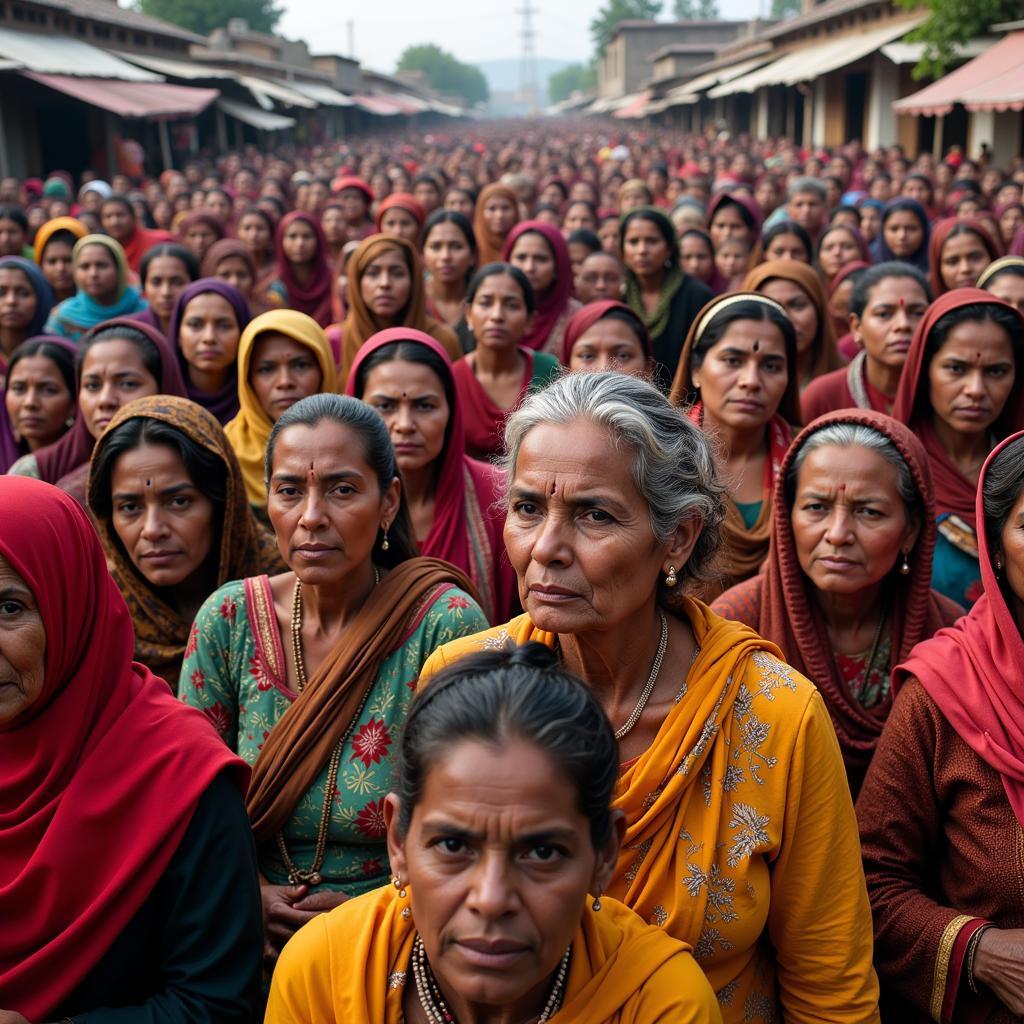The Power of “No”: Exploring an African Case Where Women Withheld Sex
In many African cultures, women hold a unique and powerful position within society. They are the backbone of their communities, responsible for nurturing families, upholding traditions, and contributing significantly to the economy. Yet, their voices are often marginalized when it comes to decision-making, both in the home and the public sphere. This power imbalance can lead to situations where women need to find innovative ways to assert their rights and influence change. One such method, steeped in history and cultural context, is the intriguing case of women withholding sex as a form of protest.
Sex as a Bargaining Chip: Understanding the Motivation
 Women Gathering in Village Square
Women Gathering in Village Square
To Western ears, the idea of women withholding sex as a political strategy might seem unusual, even archaic. However, in certain African societies, this practice, often referred to as a “sex strike,” has deep historical roots and cultural significance. It’s crucial to understand that this act isn’t merely about denying physical intimacy; it’s a powerful symbolic gesture deeply intertwined with societal norms and expectations.
In many African cultures, a woman’s sexuality is directly linked to her role as a wife and mother. It’s through childbearing that she secures her place within the family and the community. By refusing sexual relations, women are essentially disrupting this established social order. They are saying, “We will not bear children, tend to your needs, or fulfill our societal roles until our voices are heard and our demands are met.”
The Liberian Women’s Peace Movement: A Case Study
Perhaps one of the most well-known instances of this strategy occurred in Liberia during the early 2000s. As the country was ravaged by a brutal civil war, a group of women, led by Leymah Gbowee, organized a sex strike under the banner of the Women of Liberia Mass Action for Peace.
These courageous women understood that the conflict, fueled by male dominance and violence, directly impacted their lives and the future of their children. Their demand was simple yet profound: peace. They vowed to withhold sex from their husbands and partners until the warring factions laid down their arms and engaged in meaningful peace talks.
This audacious move garnered international attention and put immense pressure on the male leaders. The women’s unwavering stance eventually contributed to the peace process, demonstrating the effectiveness of their unconventional approach. The Liberian example stands as a testament to the power of collective action and the often-unsung role women play in peacebuilding.
Beyond the Headlines: The Complexities and Criticisms
It’s crucial to acknowledge that the tactic of withholding sex as a form of protest isn’t without its complexities and criticisms. Some argue that it reinforces traditional gender roles and places the burden of change solely on women. Others point out that it could potentially expose women to retaliation and violence.
Despite these valid concerns, it’s essential to view this practice within its specific cultural context. In many African societies, women have limited avenues to voice their grievances or influence political decisions. This tactic, though unconventional, can provide them with a platform and a sense of agency in situations where other methods have failed.
Conclusion: A Legacy of Resistance and Resilience
The African cases where women withheld sex as a form of protest offer a fascinating glimpse into the diverse ways women navigate power dynamics within their societies. It reminds us that “the personal is political” and that even the most intimate aspects of life can be leveraged to spark social change. While this particular method might not be applicable or even desirable in all situations, it serves as a powerful reminder of the creativity, courage, and unwavering commitment of African women in their pursuit of justice and equality.

